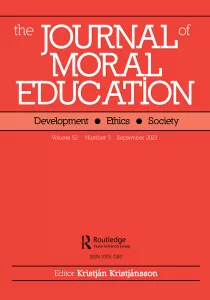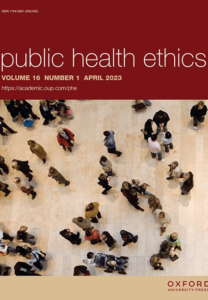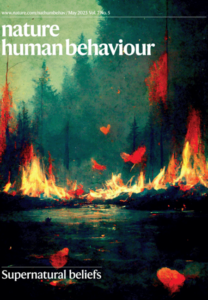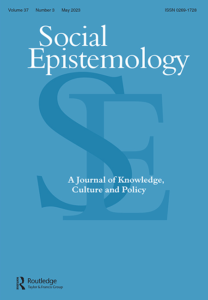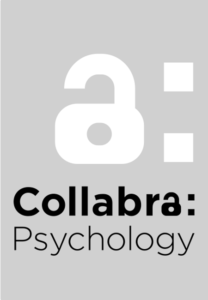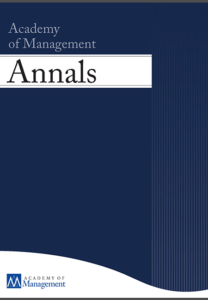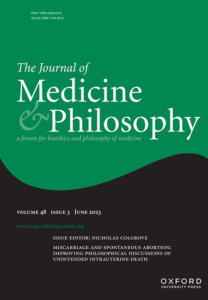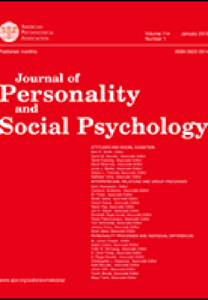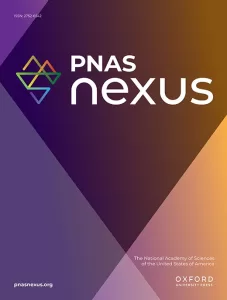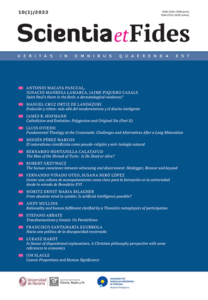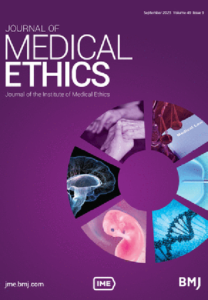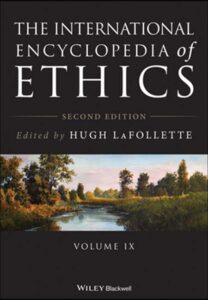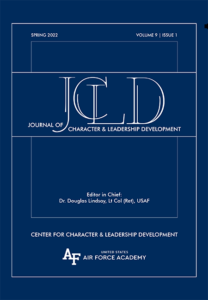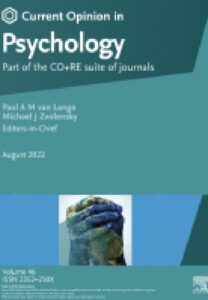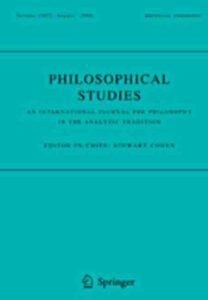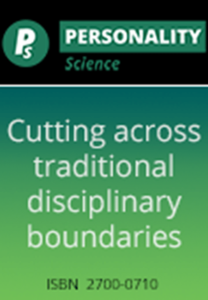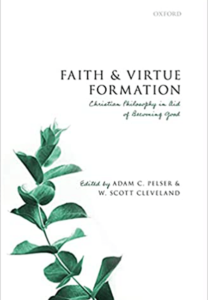Research Publications
Books
Miller, Christian. Honesty: The Philosophy and Psychology of a Neglected Virtue. Oxford: Oxford University Press, 2021.
Abstract: Honesty is clearly an important virtue. Parents want to develop it in their children. Close relationships typically depend upon it. Employers value it in their employees. Yet philosophers have said almost nothing about the virtue of honesty in the past fifty years. This book aims to draw attention to this surprisingly neglected virtue. Part I looks at the concept of honesty. It takes up questions such as what honesty involves, the motives of an honest person, how practical wisdom relates to honesty, and whether there is anything that connects all the different sides of honesty, including not lying, not stealing, not breaking promises, not misleading others, and not cheating. A central idea is that the honest person reliably does not intentionally distort the facts as she takes them to be. Part II looks at the empirical psychology of honesty. It takes up the question of whether most people are honest, dishonest, or somewhere in between. Drawing extensively on recent studies of cheating and lying in particular, the emerging model ends up implying that most of us have a long way to go to reach an honest character. Honesty: The Philosophy and Psychology of a Neglected Virtue thus provides a richer understanding of what our character actually looks like as well as what the goal of being an honest person really involves. It will then be up to us to decide if we want to take steps to shrink the character gap between the two.
Miller, Christian and Ryan West. Integrity, Honesty, and Truth Seeking. Oxford: Oxford University Press, 2020.
Abstract: Integrity, honesty, and truth seeking are important virtues that most people care about and want to see promoted in society. Yet surprisingly, there has been relatively little work among scholars today aimed at helping us better understand this cluster of virtues related to truth. This volume incorporates the insights and perspectives of experts working in a variety of disciplines, including philosophy, law, communication and rhetorical studies, theology, psychology, history, and education. For each virtue, there is a conceptual chapter, an application chapter, and a developmental chapter. The resulting volume significantly deepens our knowledge about and appreciation for these central virtues.
Articles

Miller, Christian. “Fostering Honesty: A Case Study in Character Education,” in The Future of Education: Reimagining Its Aims and Responsibilities. Eds. Jonathan Beale and Christina Easton. Oxford: Oxford University Press, forthcoming.
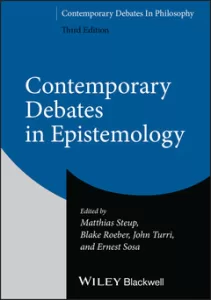
Benton, Matthew A. “Knowledge is the Norm of Assertion,” in Contemporary Debates in Epistemology, 3rd edn. Edited by Blake Roeber, John Turri, Matthias Steup, and Ernest Sosa. Wiley-Blackwell. Forthcoming.

Irvine, Kelly, Brown, Rebecca C. H., and Savulescu, Julian. “Disclosure and Consent: Ensuring the Ethical Provision of Information Regarding Childbirth.” Journal of Medical Ethics. Forthcoming.
Um, Sungwoo. “Honesty: Respect for the Right Not to be Deceived.” The Journal of Moral Education. Forthcoming.
Abstract: In this paper, I explore the characteristic reason that motivates a virtuously honest person to perform honest actions. I critically examine previous accounts of honesty’s characteristic motivating reason, including Christian Miller’s pluralistic account, which allows various virtuous motivating reasons to count as honesty’s motivation. I then introduce the respect for the right not to be deceived as the moral ground that characteristically motivates a virtuously honest person’s honest action. After addressing possible objections, I conclude by discussing its educational implications on cultivating the virtue of honesty.

van Elswyk, Peter and Chris Willard-Kyle. “Hedging and the norm of belief.” Australasian Journal of Philosophy. Forthcoming.

Miller, Christian. “How Situationism Can Impact the Goals of Character Education.” Ethical Theory and Moral Practice, Special Issue on Moral Psychology and the Goals of Moral Education, forthcoming.
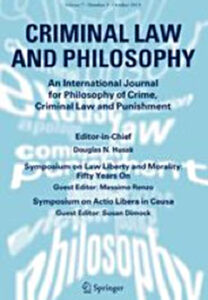
Miller, Christian.“ Practical Wisdom, Situationism, and Virtue Conflicts: Exploring Gopal Sreenivasan’s Emotion and Virtue.” Symposium on Gopal Sreenivasan’s Emotion and Virtue. Criminal Law and Philosophy, forthcoming.
Abstract: Gopal Sreenivasan’s new book, Emotion and Virtue, is an incredibly rich and impressive achievement. It is packed full of original distinctions, views, and arguments, and advances the discussion of virtue along a number of dimensions. It is required reading for anyone working on issues related to character. Here I focus less on raising objections and more on exploring how the discussion could be extended in new directions or connected with related topics, especially the situationist challenge, practical wisdom, and virtue conflicts.
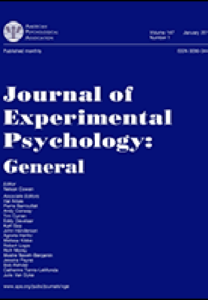
Jensen, S., Levine, E. E., White, M., and Huppert, E. “Lying is ethical, but honesty is the best policy: The desire to avoid harmful lies leads to moral preferences for unconditional honesty.” Conditionally accepted at Journal of Experimental Psychology.
Brown, Rebecca C. H. and Mícheál de Barra. “A Taxonomy of Non-honesty in Public Health Communication”, Public Health Ethics, Volume 16, Issue 1, April 2023, Pages 86–101.
Abstract: This paper discusses the ethics of public health communication. We argue that a number of commonplace tools of public health communication risk qualifying as non-honest and question whether or not using such tools is ethically justified. First, we introduce the concept of honesty and suggest some reasons for thinking it is morally desirable. We then describe a number of common ways in which public health communication presents information about health-promoting interventions. These include the omission of information about the magnitude of benefits people can expect from health-promoting interventions, and failure to report uncertainty associated with the outcomes of interventions. Next we outline some forms of behaviour which are generally recognised by philosophers as being non-honest, including deception, manipulation, and so on. Finally, we suggest that many of the public health communicative practices identified earlier share features with the non-honest behaviours described and suggest this warrants reflection upon whether such non-honesty is justified by the goals of public health communication.
de Barra, Mícheál and Brown, Rebecca C. H. “Public-health communication should be more transparent,” Nature Human Behaviour. 2023, 1-3.
Abstract: An analysis of 2,500 public-health claims reveals that organizations rarely communicate uncertainties around the benefits of behavioural change. To be ethical, public-health communication should be accurate and transparent.
Byerly, T. Ryan. “The Values of Intellectual Transparency,” Social Epistemology 37, 3 (2023): 290-304.
Abstract: In a recent book and journal article, I have developed an account of intellectual transparency as an other-regarding intellectual virtue, and have explored its conceptual relationship to the virtue of honesty. This paper aims to further advance understanding of intellectual transparency by examining some of the ways in which the trait is instrumentally valuable. Specifically, I argue that intellectual transparency tends to enhance its possessor’s close personal relationships, work performance, and civic engagement. On account of their intellectual transparency, the intellectually transparent person is likely to enjoy better quality, more satisfied personal relationships such as romantic relationships and friendships. They are likely to contribute to better work outcomes, especially when working in a team context. And, they are likely to be more civically active and to promote epistemic values of democratic deliberation.
Caron, S., Thomas, J., Torres, A., Oh, J., and Chopik, W. “How to Cancel Plans With Friends: A Mixed Methods Study of Strategy and Experience.” Collabra: Psychology, 2023, 9(1), 57549.
Abstract: Being cancelled on is inevitable. However, maintaining friendships is important and cancelled plans may evoke feelings of disappointment. To prevent this, we examined ways to go about cancelling plans that would not negatively impact friendships. Our study examined what people consider appropriate and inappropriate reasons and the best methods to cancel plans. A variety of close-ended and open-ended questions regarding what participants believed was a reasonable excuse for cancelling and the worst excuse for cancelling was asked. Participants were also asked about how cancelled plans made them feel. Among 1,192 people (72.5% women; 71.8% White), the majority of the participants wanted advanced notice and/or a quick call/text when plans are being cancelled. Health or family reasons were among the most reasonable excuses. Conversely, excuses regarding a better offer, such as finding something better to do, were among the most unacceptable reasons to cancel plans. Over 80% of the sample reported feeling annoyed when they found out that an excuse to cancel was a lie. Honoring commitments is essential to maintaining friendships, which is associated with better health and well-being. When breaking commitments, the best way to go about it is to cancel in advance and have honest and reasonable excuses which serve to maintain friendships that are a fundamental part of life and satisfy the need to belong.
Carrella, F., Miani, A., & Lewandowsky, S. “IRMA: the 335-million-word Italian corpus for studying Misinformation.” Proceedings of the 17th Conference of the European Chapter of the Association for Computational Linguistics, 2339–2349. 2023.
Abstract: The dissemination of false information on the internet has received considerable attention over the last decade. Misinformation often spreads faster than mainstream news, thus making manual fact checking inefficient or, at best, labor-intensive. Therefore, there is an increasing need to develop methods for automatic detection of misinformation. Although resources for creating such methods are available in English, other languages are often under-represented in this effort.With this contribution, we present IRMA, a corpus containing over 600,000 Italian news articles (335+ million tokens) collected from 56 websites classified as ‘untrustworthy’ by professional fact-checkers. The corpus is freely available and comprises a rich set of text- and website-level data, representing a turnkey resource to test hypotheses and develop automatic detection algorithms. It contains texts, titles, and dates (from 2004 to 2022), along with three types of semantic measures (i.e., keywords, topics at three different resolutions, and LIWC lexical features). IRMA also includes domain-specific information such as source type (e.g., political, health, conspiracy, etc.), credibility, and higher-level metadata, including several metrics of website incoming traffic that allow to investigate user online behavior. IRMA constitutes the largest corpus of misinformation available today in Italian, making it a valid tool for advancing quantitative research on untrustworthy news detection and ultimately helping limit the spread of misinformation.
Ren, B. Hart, E. Levine, E.E., and Schweitzer, M.E. “The Shared Responsibility Model of Deception.” Current Opinion in Psychology. 2023.
Abstract: We introduce the Shared Responsibility Model of deception (SR Model) to explain when observers think communicators and targets share responsibility for acts of deception.
Cooper, B., Cohen, T. R., Huppert, E., Levine, E. E., and Fleeson, W. (2023). “Honest behavior: Truth-seeking, belief-speaking, and fostering understanding of the truth in others.” The Academy of Management Annals, 17(2).
Abstract: While people across the world value honesty, it is undeniable that it can sometimes pay to be dishonest. This tension leads people to engage in complex behaviors that stretch the boundaries of honesty. Such behaviors include strategically avoiding information, dodging questions, omitting information, and making true but misleading statements. Though not lies per se, these are nonetheless deviations from honesty that have serious interpersonal, organizational, and societal costs. Based on a systematic review of 169 empirical research articles in the fields of management, organizational behavior, applied psychology, and business ethics, we develop a new multidimensional framework of honesty that highlights how honesty encompasses more than the absence of lies—it has relational elements (e.g., fostering an accurate understanding in others through what we disclose and how we communicate) and intellectual elements (e.g., evaluating information for accuracy, searching for accurate information, and updating our beliefs accordingly). By acknowledging that honesty is not limited to the moment when a person utters a clear lie or a full truth, and that there are multiple stages to enacting honesty, we emphasize the shared responsibility that all parties involved in communication have for seeking out and communicating truthful information.
Diabes, Matthew. Theory and Evidence of the Effects of Psychosocial Well-Being in Collaboration [Doctoral Dissertation, Carnegie Mellon University]. 2023.
Colgrove, Nicholas. “Unintended Intrauterine Death and Preterm Delivery: What Does Philosophy Have to Offer?” The Journal of Medicine and Philosophy 48(3), 2023.
Abstract: This special issue of the Journal of Medicine and Philosophy focuses on unintended intrauterine death (UID) and preterm delivery (both phenomena that are commonly—and unhelpfully—referred to as “miscarriage,” “spontaneous abortion,” and “early pregnancy loss”). In this essay, I do two things. First, I outline contributors’ arguments. Most contributors directly respond to “inconsistency arguments,” which purport to show that abortion opponents are unjustified in their comparative treatment of abortion and UID. Contributors to this issue show that such arguments often rely on a grossly oversimplified picture of abortion opponents’ views. Furthermore, contributions in this issue weigh in on issues regarding UID with theoretical import and therapeutic implication beyond the inconsistency argument debate. These papers can be mined for principles that better inform us about anembryonic pregnancies (i.e., nonviable pregnancies in which a gestational sac exists but no embryonic pole can be seen via transvaginal ultrasound), UID-prevention research, the law concerning UID (especially post-Dobbs), policies for handling embryonic remains, and moral psychology as it relates to UID, emotion, and empathy. In each case, conceptual philosophical analysis might bring about therapeutic benefits for those affected by UID. Philosophers, therefore, are in position not only to provide clarity—careful analysis and discussion of UID and related phenomena—but are also in position to genuinely help people affected by UID.
Jayawickreme, E., Holleran, S. E., Sutton, S., Furr, R. M., and Fleeson, W. “Do people agree on how they and others are acting? Examining the degree of target–observer and observer–observer agreement about current behavior as it changes across situations.” Journal of Personality and Social Psychology, 124(1), 215–235, 2023.
Abstract: The purpose of the present research was to test the level of agreement between targets and observers both at any given moment and as the targets’ current behavior (assessed as personality states) change across moments. Ninety-seven target participants participated in 22 different activities across 20 1-hour long sessions in a laboratory setting while reporting their current behavior, and their behavior was evaluated by 183 observers (total of 3,493 target self-reports, 2,973 of which had a corresponding observer report from at least one observer). Target–observer and observer–observer agreement was significant for all personality states (and was substantial for extraversion, conscientiousness, and openness to experience), and was observed in different situations, across all situations, and after accounting for normative agreement. The findings from this study—the first to examine within-person agreement on in-person behavioral states—provide evidence that people can accurately report their current behavior, that people agree on changes in behaviors across situations, and by extension that intensive assessment methodologies (such as experience-sampling methodology) have validity as assessments of momentary behavior. (PsycInfo Database Record (c) 2023 APA, all rights reserved)

Wheat, R. Do Expectancies Moderate the Goal-Honesty Relationship? Masters thesis to be submitted to the Graduate School of Wake Forest University. R. Michael Furr, advisor. 2023.

Hardin, B., Can Specific Prosocial Goals Promote Either Kind Lies or Benevolent Honesty? Masters thesis to be submitted to the Graduate School of Wake Forest University. 2023.

Miller, Christian. “Technology and the Virtue of Honesty,” in Technology Ethics: A Philosophical Introduction and Readings. Eds. Gregory J. Robson and Jonathan Y. Tsou. Routledge, 2023, 83-92.
Chopik, W., and Lee, J. H. (2022). “Dyadic Associations Between Conscientiousness Facets, Health, and Health Behavior Over Time.” Collabra: Psychology, 8(1), 37611.
Abstract: Previous studies show consistent associations between conscientiousness and health outcomes. However, less is known about how various facets of conscientiousness, of both individuals and their partners, are associated with changes in health in older adults over time. Applying the actor–partner interdependence model, we examined dyadic associations of broader conscientiousness and its six facets and changes in health, health behavior, and well-being in middle-aged and older couples. With a sample of 3,271 couples (N=6,542) from the Health and Retirement Study, we found that actor conscientiousness, orderliness, and industriousness were most reliably associated with better health outcomes over time. Partner orderliness was associated with better health and more positive health behavior. The remaining associations were near-zero in their effect sizes. Many of these associations persisted over the 10-year period of the study, and there was little evidence for gender differences or multiplicative interactions.
Lasser, J., Aroyehun, S. T., Simchon, A., Carrella, F., Garcia, D., & Lewandowsky, S. “Social media sharing of low quality news sources by political elites.” PNAS Nexus, pgac186. 2022.
Abstract: Increased sharing of untrustworthy information on social media platforms is one of the main challenges of our modern information society. Because information disseminated by political elites is known to shape citizen and media discourse, it is particularly important to examine the quality of information shared by politicians. Here, we show that from 2016 onward, members of the Republican Party in the US Congress have been increasingly sharing links to untrustworthy sources. The proportion of untrustworthy information posted by Republicans versus Democrats is diverging at an accelerating rate, and this divergence has worsened since President Biden was elected. This divergence between parties seems to be unique to the United States as it cannot be observed in other western democracies such as Germany and the United Kingdom, where left–right disparities are smaller and have remained largely constant.
Miller, Christian. “Intellectual Honesty.” Scientia et Fides 10 (2022): 83-98.
Abstract: Until recently, almost nothing had been written about the moral virtue of honesty in the past 50 years of Western analytic philosophy. Slowly, this is begin-ning to change. But moral honesty is not the only kind of honesty there is. In this pa-per, Ifocus specifically on the intellectual cousin to moral honesty, and offer apre-liminary account of its behavioral and motivational dimensions. The account will be centered on not intentionally distorting the facts as the person takes them to be, for one of avariety of intellectually virtuous motivating reasons.
Colgrove, Nicholas. “Deception, Intention, and Clinical Practice.” Journal of Medical Ethics (Online First), 2022.
Abstract: Regarding the appropriateness of deception in clinical practice, two (apparently conflicting) claims are often emphasised. First, that ‘clinicians should not deceive their patients.’ Second, that deception is sometimes ‘in a patient’s best interest.’ Recently, Hardman has worked towards resolving this conflict by exploring ways in which deceptive and non-deceptive practices extend beyond consideration of patients’ beliefs. In short, some practices only seem deceptive because of the (common) assumption that non-deceptive care is solely aimed at fostering true beliefs. Non-deceptive care, however, relates to patients’ non-doxastic attitudes in important ways as well. As such, Hardman suggests that by focusing on belief alone, we sometimes misidentify non-deceptive care as ‘deceptive’. Further, once we consider patients’ beliefs and non-doxastic attitudes, identifying cases of deception becomes more difficult than it may seem. In this essay, I argue that Hardman’s reasoning contains at least three serious flaws. First, his account of deception is underdeveloped, as it does not state whether deception must be intentional. The problem is that if intention is not required, absurd results follow. Alternatively, if intention is required, then identifying cases of deception will be much easier (in principle) than Hardman suggests. Second, Hardman mischaracterises the ‘inverse’ of deceptive care. Doing so leads to the mistaken conclusion that common conceptions of non-deceptive care are unjustifiably narrow. Third, Hardman fails to adequately separate questions about deception from questions about normativity. By addressing these issues, however, we can preserve some of Hardman’s most important insights, although in a much simpler, more principled way.
Miller, Christian. “Bullshit,” in The Blackwell International Encyclopedia of Ethics. Oxford: Blackwell Publishing, 2022, 1-6.
Abstract: Harry Frankfurt begins his famous paper, “On Bullshit,” with these words: “One of the most salient features of our culture is that there is so much bullshit. Everyone knows this. Each of us contributes his share” (1988: 117). But what is bullshit? And how does it relate to concepts such as lying and dishonesty? This entry begins by introducing some useful distinctions, and then turns to reviewing the accounts of bullshit provided by Harry Frankfurt, G. A. Cohen, and Andreas Stokke. It ends by clarifying the connection between bullshit and honesty.
Miller, Christian. “Honesty,” in The Blackwell International Encyclopedia of Ethics. Oxford: Blackwell Publishing, 2022, 1-10.
Abstract: Honesty is held in great esteem in most societies. There is little controversy that honesty is a virtue, nor about whether it is worthwhile to try to cultivate in ourselves and others. At the same time, there has been remarkably little work done on honesty by philosophers in the past one hundred years. So the primary goal here is to outline many of the central philosophical issues and questions that can arise when thinking about honesty, without offering much by way of a review of the literature as there is so little on offer.
Miller, Christian. “Honesty and Character in Contention: Author Meets Cadet Critics.” Journal of Character and Leadership Development (2022): 114-118.
Abstract:The U.S. Air Force Academy’s National Character and Leadership Symposium (NCLS) staff invited Dr. Christian Miller, the A.C. Reid Professor of Philosophy at Wake Forest University and a well-known expert on moral philosophy, moral psychology, and character development to participate in a unique opportunity at the 2022 NCLS. In addition to delivering a traditional presentation, he was invited to participate in an “author meets critics” session, where the critics would be cadets competitively selected as part of a contest conducted in the fall prior to the Symposium. Dr. Miller eagerly agreed. Cadets Marc Brunner, Madelyn Letendre, and Caden Wilson were selected to participate by an interdisciplinary panel of experts.
Brown, R.C.H., de Barra, M. & Earp, B.D. “Broad Medical Uncertainty and the Ethical Obligation for Openness,” Synthese, 2022.
Abstract: This paper argues that there exists a collective epistemic state of ‘Broad Medical Uncertainty’ (BMU) regarding the effectiveness of many medical interventions. We outline the features of BMU, and describe some of the main contributing factors. These include flaws in medical research methodologies, bias in publication practices, financial and other conflicts of interest, and features of how evidence is translated into practice. These result in a significant degree of uncertainty regarding the effectiveness of many medical treatments and unduly optimistic beliefs about the benefit/harm profiles of such treatments. We argue for an ethical presumption in favour of openness regarding BMU as part of a ‘Corrective Response’. We then consider some objections to this position (the ‘Anti-Corrective Response’), including concerns that public honesty about flaws in medical research could undermine trust in healthcare institutions. We suggest that, as it stands, the Anti-Corrective Response is unconvincing.
Byerly, T. Ryan. “Group Intellectual Transparency: A Novel Case for Non-Summativism,” Synthese, 2022.
Abstract: Philosophical reflection on transparency, including group transparency, is beginning to gain steam. This paper contributes to this work by developing a conceptualization of transparency as an intellectual character trait that groups can possess, and by presenting a novel argument for thinking that such transparency should be understood along non-summativist lines. According to the account offered, a group’s being intellectually transparent consists in the group’s tending to attend well to its perspective and to share its perspective faithfully with others in order to promote their epistemic goods. It is argued that this kind of group intellectual transparency, pace summativism, does not always consist merely in group members possessing intellectual transparency. The argument given for this conclusion works differently from existing arguments for non-summativism about group character traits, and it retains persuasive power even if summativist views of most group phenomena, including other group character traits, are correct.
Byerly, T. Ryan. “Intellectual Honesty and Intellectual Transparency,” Episteme, 2022.
Abstract: The purpose of this paper is to advance understanding of intellectually virtuous honesty, by examining the relationship between a recent account of intellectual honesty and a recent account of intellectual transparency. The account of intellectual honesty comes from Nathan King, who adapts the work of Christian Miller on moral honesty, while the account of intellectual transparency comes from T. Ryan Byerly. After introducing the respective accounts, I identify four potential differences between intellectual honesty and intellectual transparency as understood by these accounts. I then turn to the question of how to think about the relationship between these traits in light of these potential differences. I make the case that intellectual transparency can either be regarded as an exceptionally strong or ideal variety of intellectual honesty, or it can be regarded as a distinct virtue from intellectual honesty which is a more cardinal virtue than the latter. Along the way, I also note some places where a case can be made that Miller’s and King’s accounts of honesty and intellectual honesty are in need of refinement or clarification.
Cohen, T. R., Helzer, E. G., & Creo, R. A. “Honesty among lawyers: Moral character, game framing, and honest disclosures in negotiations.” Negotiation Journal, 2022.
Abstract: Lawyers have broad discretion in deciding how honestly to behave when negotiating. We propose that lawyers’ choices about whether to disclose information to correct misimpressions by opposing counsel are guided by their moral character and their cognitive framing of negotiation. To investigate this possibility, we surveyed 215 lawyers from across the United States, examining the degree to which honest disclosure is associated with lawyers’ moral character and their tendency to frame negotiation in game-like terms—a construal of negotiation that we label game framing. We hypothesize that the more that lawyers view negotiation through a game frame—that is, the more they view negotiation as an adversarial context with arbitrary and artificial rules—the less honest they will be in situations in which honest disclosure is not mandated by professional rules of conduct. We further hypothesize that lawyers with higher levels of moral character will apply a game frame to negotiation to a lesser degree than will lawyers with lower levels of moral character, and that honesty when negotiating will be higher when lawyers have higher versus lower levels of moral character. Our study results support these hypotheses. This work suggests that focusing on game-like aspects of negotiation can induce a less moral and ethical mindset. To the extent that teaching law students to “think like a lawyer” encourages them to adopt a game frame of negotiation, we can expect such training to reduce the likelihood of honest disclosure.
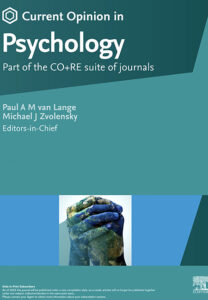
Fleeson, W., Furr, R. M., Jayawickreme, E., & Hardin, B. “Honesty as a trait.” Current Opinion in Psychology, 2022.
Abstract: The purpose of this paper is to review recent research about the possibility that some people are more honest than others and about the causes of them being so. We tackle four big questions about consistency of honest behavior, the content and breadth of trait honesty, the mechanisms underlying trait honesty, and the measurement of trait honesty. Recent research reveals we are only at the beginning states of answering these questions about honesty. Invigorated research is needed to firmly resolve whether individuals differ in honesty and if so, integrate the determining mechanisms and develop strong measurements.
Fulham, N. M., Krueger, K. L., Cohen, T. R. “Honest feedback: Barriers to receptivity and discerning the truth in feedback.” Current Opinion in Psychology, Volume 46, 2022.
Abstract: Feedback is information provided to recipients about their behavior, performance, or understanding, the goal of which is to foster recipients’ self-awareness, and behavioral reinforcement or change. Yet, feedback often fails to achieve this goal. For feedback to be effective, recipients must be receptive and accurately understand the meaning and veracity of the feedback (i.e., discern the truth in feedback). Honesty is critically important for both receptivity and discerning the truth in the feedback. In this article, we identify barriers to receptivity and discerning the truth in feedback and illustrate how these barriers hinder recipients’ learning and improvement. Barriers can arise from the feedback itself, the feedback-giver, and the feedback-recipient, and both parties share responsibility for removing them.
Furr, R. M., Prentice, M. Hawkins Parham, A., & Jayawickreme, E. “Development and validation of the Moral Character Questionnaire.” Journal of Research in Personality, 98, 2022.
Abstract: Although moral character may be the most central and consequential facet of one’s personality, existing measures are few and suffer from shortcomings. We present the Moral Character Questionnaire (MCQ) to focus primarily on global moral character and secondarily on six moral domains – Honesty, Compassion, Fairness, Loyalty, Respect, and Purity. All subscales assess core components of personality dispositions, including behavior, motivation, cognition, and identity. Across 14 samples and >13,000 participants, MCQ subscales are generally unidimensional, have good-to-strong reliability, and are temporally stable. Based upon hypotheses regarding 21 criterion measures, analyses reveal strong convergent/discriminant validity. Finally, we found connections between the MCQ scales and core personality traits. The MCQ is an efficient and psychometrically strong measure grounded in contemporary personality theory.
Le, B. M., Chopik, W. J., Shimshock, C. J., & Chee, P. X. “When the truth helps and when it hurts: How honesty shapes well-being.” Current Opinion in Psychology, 2022.
Abstract: Despite honesty being valued in many settings, there is some ambiguity regarding the conditions under which it is beneficial or harmful for individual and relational well-being. We review and evaluate current work linking honesty to well-being. Specifically, we highlight and distinguish associations between honesty and different types of well-being within people, between people, and among broader groups, organizations, and societies. Importantly, we provide additional context that explains why honesty is not universally associated with greater well-being—and how it may even incur costs for individuals. We provide suggestions for future directions for moving toward a more holistic understanding of honesty and the ways in which honesty can be used to understand individual and relational functioning.
Miller, Christian. “Cultivating Virtue in the University: Some Ideas from Philosophy and Psychology,” in Cultivating Virtue in the University. Eds. Michael Lamb, Jonathan Brant, and Edward Brooks. Oxford: Oxford University Press, 157-177, 2022.
Abstract: Philosophers have said very little about cultivating virtue in the university. In order to make some preliminary headway, I consider a number of questions including:
- What is virtue? What are the virtues?
- Should universities be in the business of cultivating virtue? If so, for which members of the university?
- How good or bad are students’ characters to begin with?
- Should a university promote all the virtues in general? Or just focus on a few specific virtues?
- If it is a few specific virtues, which ones?
- How should universities go about fostering those specific virtues?
The chapter ends by focusing on the virtue of honesty in particular. It first clarifies some of the philosophical issues and experimental findings which pertain to this virtue. Then it briefly outlines some strategies for fostering honesty in university students.

Miller, Christian. “Further Thoughts on Honesty: A Reply to Robert Hauptman.” Journal of Information Ethics, 31, 115-117, 2022.
Abstract: I am very grateful to Robert Hauptman for taking the time to read my book, Honesty: The Philosophy and Psychology of a Neglected Virtue, and for writing such a generous (and, I might add, highly entertaining!) review of it in these pages. As if that weren’t enough, he also gave me the option to respond to his review essay, which I will gladly do in what follows.
Van Elswyk, Peter and Matthew Benton. “Assertion Remains Strong.” Philosophical Studies, 2022.
Abstract: Assertion is widely regarded as an act associated with an epistemic position. To assert is to represent oneself as occupying this position and/or to be required to occupy this position. Within this approach, the most common view is that assertion is strong: the associated position is knowledge or certainty. But recent challenges to this common view present new data that are argued to be better explained by assertion being weak. Old data widely taken to support assertion being strong has also been challenged. This paper examines such challenges and finds them wanting. Far from diminishing the case for strong assertion, carefully considering new and old data reveals that assertion is as strong as ever.
Furr, R. M., Jayawickreme, E., and Santos, C. “An Overview of the Trait Truthful Communication Scale: Conceptual Foundations and Psychometric Properties.” Technical Report of the Honesty Project at Wake Forest University. 2021.
Abstract: The purpose of this document is to present the Trait Truthful Communication (T-TCS) scale, to describe its conceptual foundation, and to provide initial evidence of its psychometric quality. This document is brief and is intended for researchers who are considering using the T-TCS scale in their own work. At some point, the material summarized briefly in this document will (hopefully) be presented in detail in a full article.
Fleeson, W., & Jayawickreme, E. “Whole traits: Revealing the social-cognitive mechanisms constituting personality’s central variable.” In B. Gawronski (Ed.), Advances in Experimental Social Psychology, 69-128, 2021.
Abstract: Whole Trait Theory articulates a modern theory of individuals’ traits, one that incorpo- rates social-cognitive responsiveness to situations into the nature of traits themselves. It articulates two parts of individuals’ traits, which are joined together into whole traits. One part of individuals’ traits is the descriptive part, and describes how much people enact the trait content in their behavior. The other part is the explanatory part, and con- sists of social-cognitive, motivational, and biological mechanisms that cause the trait contents people enact in their behavior. Two decades of supportive research showed first that trait-content enactments are quite variable. People change the trait contents they enact from moment to moment as much as they change their affect from moment to moment and more than people differ from each other. Nonetheless, people differ in average trait-content enactments in very consistent and reliable ways. The density dis- tribution expresses these joint findings in a unified way, standing as the descriptive side of personality. Second, these descriptive accounts of personality were found to be predicted by social-cognitive mechanisms. Within-person variations in trait-content enactments (states) were predictable from situation features in systematic and mean- ingful ways. Most of the variance—both within-person and between-person—in states was explained by momentary variation in goal pursuit. States were shown to be con- sequential (e.g., extraverted states cause positive affect). Goals were shown to cause states as well. People appear to change states in order to accomplish the consequences desired by current goals at the time. These findings highlight the functional role of personality traits.
Jayawickreme, E., Fleeson, W., Beck, E. D., Baumert, A., & Adler, J. M. “Personality dynamics.” Personality Science, 2021.
Abstract: Traditionally, personality psychology has been understood as the study of stability in people’s dispositions. However, a different strand of personality research has highlighted the importance of acknowledging and explaining the meaningful intraindividual variation in human thoughts, feelings, and behavior across different contexts and time. The goal of this paper is to review this strand, highlight current research, and outline key questions for future research. We summarize historical perspectives on the dynamic processes underlying the emergence of personality within and across individuals (e.g. the pioneering theorizing of Allport; the person-situation debate), recent theoretical and empirical advances in incorporating dynamic processes into the definition and assessment of personality (e.g., the study of personality states; dynamic approaches to personality including Cognitive Affective Personality System [CAPS], Whole Trait Theory, the Knowledge-and-Appraisal Personality Architecture [KAPA] framework, and Nonlinear Interaction of Person and Situation [NIPS]), and new directions in current research (e.g. idiographic approaches; understanding variability in narrative identity). We end with suggestions for future research.
Miller, Christian. “Cultivating Honesty,” in Faith & Virtue Formation: Christian Philosophy in Aid of Becoming Good, Eds. Adam Pelser and Scott Cleveland. Oxford: Oxford University Press, 213-235, 2021.
Abstract: In this paper, I attempt to take some preliminary steps towards thinking about how to cultivate the virtue of honesty in a novel way. Its novelty stems from the fact that the approach will draw on the latest psychological research being done on honest and dishonest behaviors.
Miller, Christian. “Flirting with Skepticism about Practical Wisdom,” in Practical Wisdom: Philosophical and Psychological Perspectives. Eds. Mario De Caro and Maria Silvia Vaccarezza. New York: Routledge, 52-69, 2021.
Abstract: This paper maps out various options for thinking about two issues: the structural relationship between practical wisdom and the moral virtues, and the various functions of practical wisdom. With the help of a case study of the virtue of honesty, three main concerns are raised for what I call the Standard Model of practical wisdom. Two other models, the Socratic Model and the Fragmentation Model, are also critically evaluated. I end by taking seriously an eliminativist approach according to which the trait of practical wisdom does not exist.
Miller, Christian. “Moral Relativism and Virtue,” in Virtues and Virtue Education in Theory and Practice: Are Virtues Local or Universal? Eds. Catherine A. Darnell and Kristján Kristjánsson. New York: Routledge, 11-25, 2021.
Abstract: While there is an extensive literature on moral relativism in meta-ethics, little has been said in assessing the view with respect to virtue specifically. The goal of this paper is to provide an overview of what I take to be the central issues surrounding moral relativism and moral virtue. Hence rather than trying to advance a moral relativist or moral realist position in detail myself, my approach is more programmatic. I also try to avoid too much technicality in the hope that the paper will be of interest and relevance to those outside the narrow halls of contemporary analytic philosophy.
Miller, Christian. “The Philosophy and Psychology of Character,” Personality Science 2: 1-5, 2021.
Abstract:In this short reflection piece, I outline how I see both philosophy and psychology contributing to the study of character. In addition, I highlight an area where far more collaborative work needs to be done.
Miller, Christian. “Motivation and the Virtue of Honesty: Some Conceptual Requirements and Empirical Results.” Ethical Theory and Moral Practice. Special Issue on Character, 23: 355-371, 2020.
Abstract: The virtue of honesty has been stunningly neglected in contemporary philosophy, with only two papers appearing in the last 40 years. The first half of this paper is a conceptual exploration of one aspect of the virtue, namely the honest person’s motivational profile. I argue that egoistic motives for telling the truth or not cheating are incompatible with honest motivation. At the same time, there is no one specific motive that is required for a person to be motivated in a virtuously honest way. Instead I advance a pluralistic theory of honest motivation, which allows for motives of caring, fairness, and virtue, among others. The second half of the paper then turns briefly to the empirical literature in psychology and behavioral economics on cheating, to see to what extent honest motives appear to be operative. The upshot is that we have good preliminary evidence for the claim that most people are not virtuously honest.
Miller, Christian. “Honesty and Dishonesty: Unpacking Two Character Traits Neglected by Philosophers.” 75th Anniversary Special Issue on Virtue Ethics: Contemporary Issues. Portuguese Journal of Philosophy 76: 343-362, 2020.
Abstract: There has been almost nothing written in philosophy on honesty in the past fifty years. This paper contributes one piece to a larger project of trying to change this unfortunate state of affairs. In section one, I outline an original account of the behavioural component of honesty as involving being disposed to not intentionally distort the facts as the person sees them. Section two turns to the vice of deficiency, namely dishonesty, which I suggest is the only vice corresponding to honesty. It has at least five different dimensions, and a person’s character needs to be assessed along all of them before an overall judgment as to her dishonesty can justifiably be made.
Miller, Christian. “The Virtue of Honesty, Nazis at the Door, and Huck Finn Cases.” Belgrade Philosophical Annual. Special Issue on Moral Psychology 32, 51-66, 2019.
Abstract: I begin by outlining some of the central conceptual features of the virtue of honesty. But the real focus of the paper is on seeing how my account of honesty can handle certain challenging cases. One case is the “Nazi at the door” example. The other is Mark Twain’s Huck Finn, who seemed to think that what he was doing in helping Jim was morally wrong, and yet we would be reticent to count it as a case of failing to be honest. I argue that my proposed account of honesty can recommend plausible ways to think about both of these famous cases.


